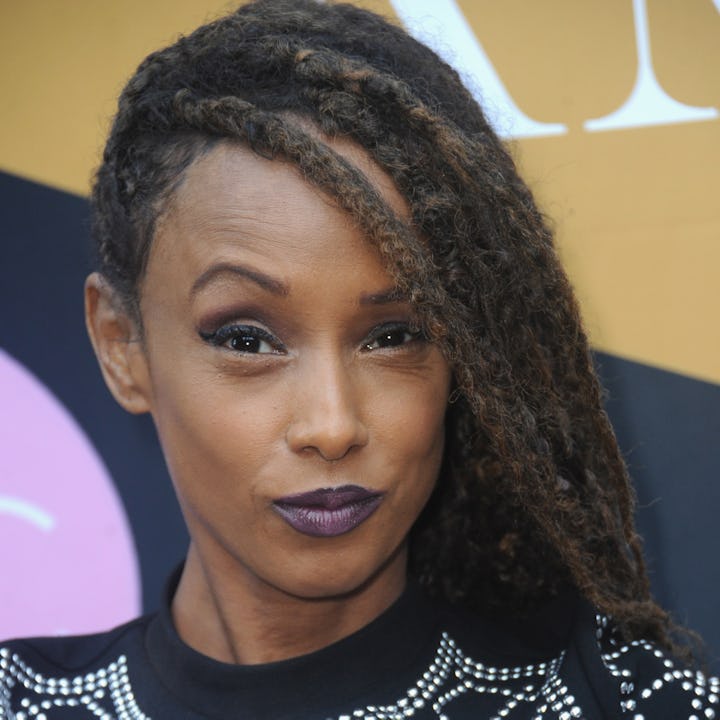Trina McGee Reveals Why Angela Wasn't In The 'Boy Meets World' Finale
The actress, who played Angela Moore for three seasons, was told that the other cast members didn't want her there and to "turn down" her "Black meter."

It’s hard to believe that Boy Meets World came to its tearful conclusion nearly 22 years ago. During an episode of Danielle Fishel, Will Friedle, and Rider Strong’s podcast Pod Meets World, Trina McGee, who played Angela Moore and Shawn Hunter’s love interest for the final three seasons, revealed why she was missing from the TGIF finale.
“This is some ground we have not covered. I was told, in kind of a weird, off-handed way by a very important person, that you guys all went to [showrunner] Michael Jacobs, and you said, ‘We don’t want her in the last episode. She’s somehow taking our light.’ [That] was the gist of it,” McGee explained on the podcast.
“I was told that after I shot what was the show before the last episode, which was called ‘Angela’s Ashes’ when I left. When Michael announced to me, we’re going to do another show on Angela, I was so happy, not knowing this was going to be the show before the last show.”
Her former costars were absolutely shocked and apologized that she had to go through that — especially since none of the costars ever expressed those feelings that the showrunner had relayed to McGee. “Can we say for the record, Trina, that never happened,” Friedle, who played Cory Matthews’ goofy older brother Eric Matthews, said. “That’s not competitiveness, that’s sociopathy. This pisses me off. This is next level.”
Boy Meets World sent off McGee’s character in an episode called “Angela’s Ashes,” the third-to-last episode before the series’ two-part finale. McGee recalled being told to “turn down the Telma Hopkins about eight notches,” (referencing the Black Family Matters actor) during her performance, which McGee referred to as her “Black meter.”
“Coming from Black sitcoms, I always had to have like a Black meter… My Black meter was probably down to a 2. I remember when I was doing ‘Angela’s Ashes’ episode, somehow my Black meter had slipped up and I was at about a 9. Michael came over to me and his note was, ‘Hey Trina, just turn down the Telma Hopkins about eight notches,'” she said. “I knew exactly what he was talking about and I did. … There are so many things you guys are so lucky you didn’t have to think about.”
This isn’t the only thing her white co-stars did not have to think about. McGee also reflected on an op-ed “she” wrote for Daily News defending the show’s decision not to uplift the fact that Angela and Shawn were in one of the few interracial relationships on primetime television. Turns out it was written by her husband and publicist. "I was very confused at the time about whether to talk about it or not — I had two realms of thinking: my job and mankind," McGee explained.
Friedle opened up about how he said “something stupid” when he once saw McGee sporting a red hair wrap during makeup and wardrobe before one of the shows and made an Aunt Jemima reference as a “joke” that ultimately changed his life.
"So right before I walked on for my part, I walked by and went, 'Love your syrup,' and walked on to the set, thinking 'Boom, zing! Just got her for her hat,' " Friedle explained. After his scene, McGee confronted Friedle about the comment, which left him "shaken." Friedle credits that moment with changing his life.
"That moment was the moment where I was like, you can't just say stuff," Friedle said. "You can't just throw things out there, because you think it's funny and walk away. You could be hurting people because you think it's funny.”
While it is sad to hear that McGee had to go through all that racist bullsh-t working on Boy Meets World, it is cool to see the cast coming together to acknowledge its shortcomings how they can move forward as friends and entertainers to make sure all sets are safe and equitable workplaces.